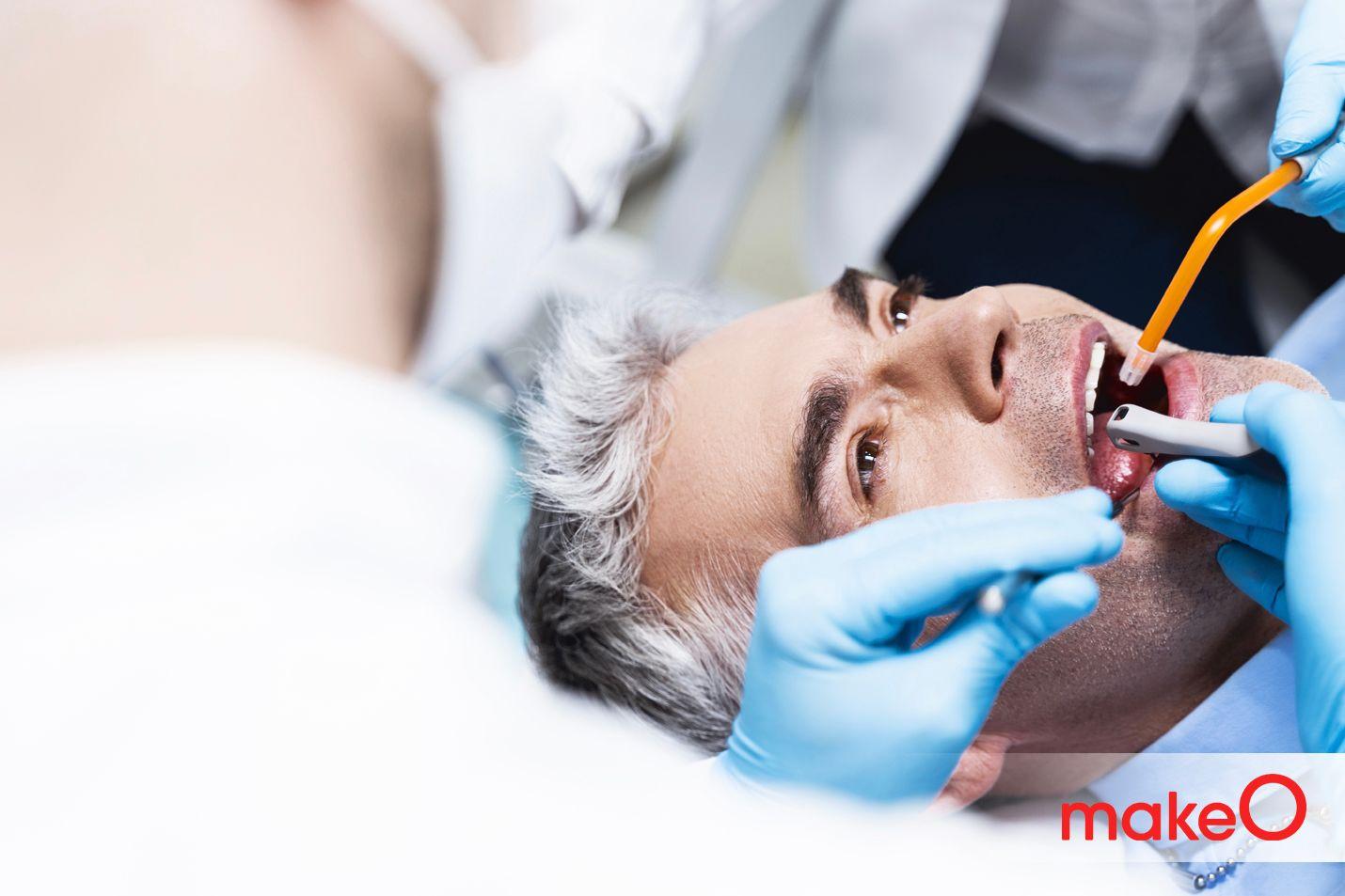MakeO blog
Prioritising oral health is essential for overall well-being, prompting the need for certain dental procedures to safeguard our natural teeth. One such treatment is the highly regarded root canal therapy, aimed at saving severely infected or damaged teeth. In this article, we will look into the details of RCT treatment, highlight signs leading to this procedure, explore the cost of root canal treatment, and provide a list of post-treatment dietary precautions.
What is a Root Canal?
The root canal procedure, also referred to as endodontic therapy, represents a dental treatment undertaken to address the effects of an infected or severely damaged tooth. This procedure involves the extraction of the tooth's pulp, a soft tissue that encompasses nerves, blood vessels, and connective tissues. Deep decay, cracks, or traumatic events can lead to pulp infection, causing excruciating pain and potential tooth loss.
By meticulously removing the infected pulp, shaping and cleansing the root canals, and sealing them with a biocompatible material, dentists can salvage the tooth while resuming its normal functionality.
What is The Reason to Get a Root Canal Treatment?
Numerous circumstances might lead to the need for RCT of teeth. The primary indication arises when the tooth's pulp becomes infected or inflamed due to profound decay, repetitive dental interventions on the same tooth, or the occurrence of cracks or fractures. Other factors contributing to the need for this procedure encompass tooth trauma, gum disease, or defective dental restorations.
Left untreated, an infected tooth can cause severe pain, abscess formation, and even propagate the infection to adjacent tissues. By undergoing a root canal procedure, the infected tissue is eradicated, pain is removed, further damage is averted, and the natural tooth is preserved.
How to Know If You Need an RCT?
Several symptoms may serve as red flags indicating the requirement for root canal surgery. If you endure persistent toothaches, especially when biting or applying pressure, heightened sensitivity to hot or cold stimuli, gum swelling or tenderness, or the emergence of a pimple-like swelling on the gum, it is imperative to consult a dental professional promptly. Moreover, tooth darkening or discolouration, lingering sensitivity to sweet substances, or a lingering unpleasant taste in the mouth may signify an underlying tooth infection. A comprehensive examination conducted by a dental expert, oftentimes followed by X-rays, is essential to ascertain the necessity of a root canal.
Root Canal Treatment Cost
The RCT treatment cost in India can vary depending on several factors, including the complexity of the case, the tooth's location, and the dentist's expertise. On average, the expenses may range between ₹2,500 and ₹8,000 per tooth. However, it is advisable to consult a dental professional for an accurate estimate tailored to your specific circumstances.
Food to Avoid After RCT Treatment
- Refrain from consuming hard and crunchy foods such as nuts and chips to prevent potential damage to tooth restorations.
- Avoid sticky and chewy substances like caramel and gum, as they can dislodge temporary fillings.
- Minimise consumption of excessively hot or cold foods and beverages to mitigate sensitivity.
- Steer clear of sugary foods to curtail the risk of further tooth decay.
Root canal therapy serves as a vital dental procedure for salvaging severely infected or damaged teeth, ensuring the preservation of oral health. Promptly identifying the signs that warrant a root canal and seeking professional dental care is essential for successful treatment outcomes. Although the cost of root canal treatment in India may vary depending on various factors, it is an investment in preserving natural teeth and avoiding more extensive and expensive dental interventions in the future.
FAQs
Is it painful to get a root canal?
Root canal procedures are typically performed under local anaesthesia, ensuring minimal discomfort during the treatment. However, some individuals may experience mild soreness or sensitivity afterwards, which can be managed with over-the-counter pain relief options.
What is done during a root canal?
During a root canal, the infected pulp is carefully removed from the tooth, followed by thorough cleaning and shaping of the canals. Subsequently, a biocompatible material is used to seal the canals, and in many cases, a dental crown is placed to protect and strengthen the restored tooth.
How long can a root canal last?
When proper oral hygiene practices are maintained, and regular dental check-ups are followed, a well-executed root canal treatment can last a lifetime. This ensures long-term relief from pain and helps preserve the natural tooth structure.
Can I eat after a root canal?
After a root canal, it is recommended to wait until the numbing effect subsides before eating to prevent accidental bites on the cheek or tongue. Initially, opting for softer foods is advised, gradually reintroducing normal foods as any post-treatment discomfort diminishes.
related categories
Related articles

Types of Braces: Removable vs Fixed Braces, Which is Right For You?

This Diwali, Smile Bright With makeO Teeth Whitening Kit

Dr. Pravin Shetty: Pioneer in Lingual Orthodontics & Innovative Smile Solutions
How do I Know I’m the Right Candidate for makeO toothsi Teeth Aligners?

